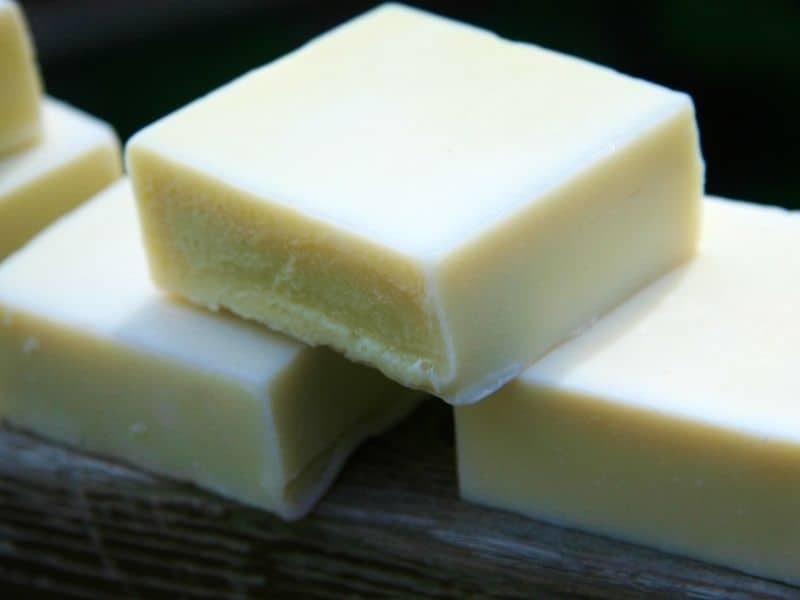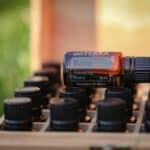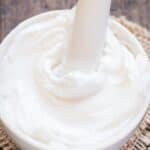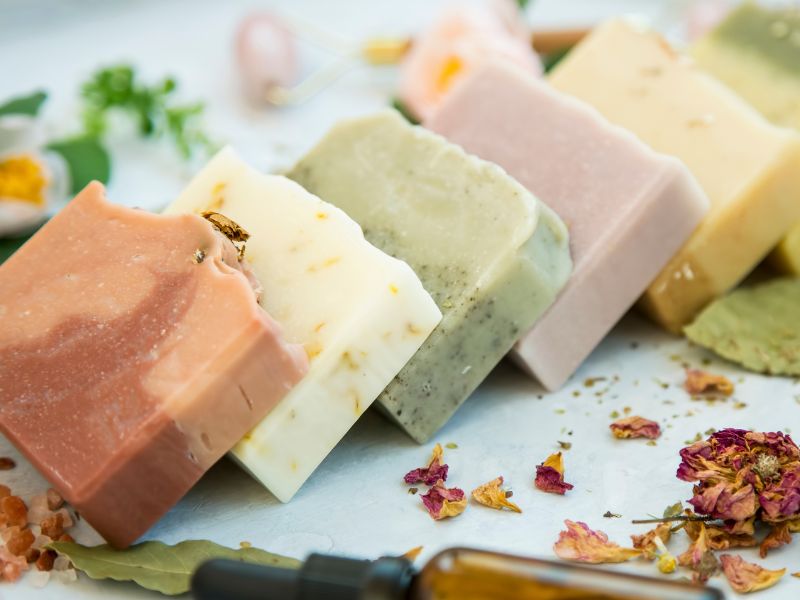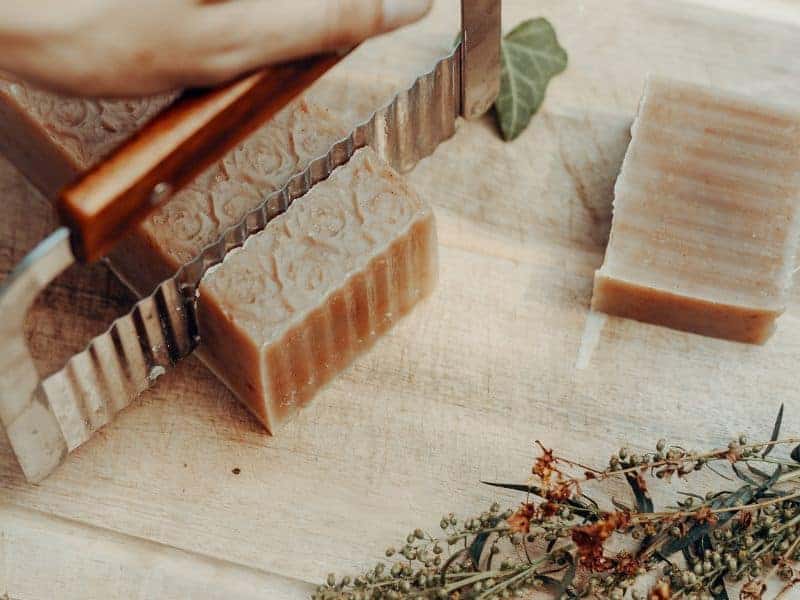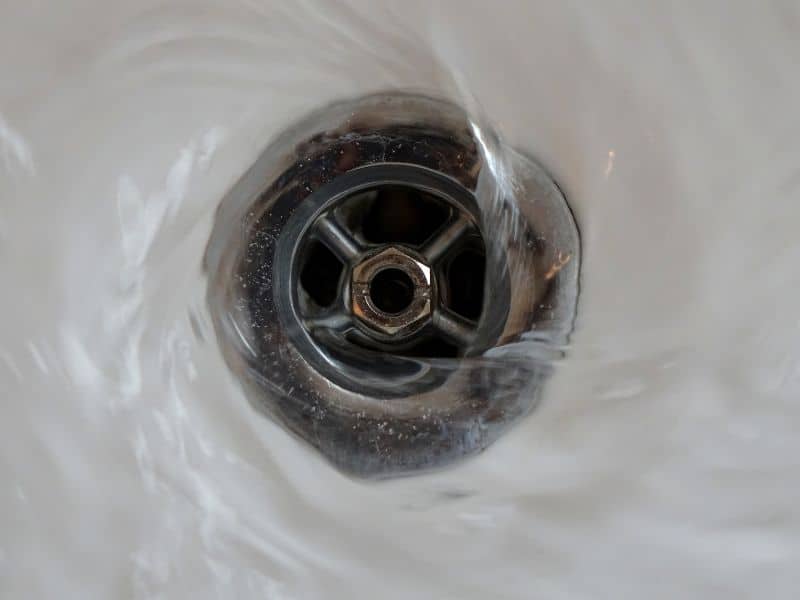When seeking the best melt and pour soap base, you have a few different options to choose from and the one you pick will depend on what is specifically best for you. The best one is the one that will give you the results you are looking for.
Let’s take a closer look and see what these different bases offer.
What Exactly Are Melt And Pour Soap Bases?
Melt and pour soap bases make it simple to make spa-quality soaps at home. They are primarily made of natural moisturizing materials like plant butter, olive oil, and sodium hydroxide, which is a saponifying associate, and come in handy blocks.
Such ingredient slabs are heated, transforming them into a fluid that can then be poured into a wide range of molds. You can customize the soap while it’s still liquid by introducing a range of different assisting ingredients.
Additional moisturizing plant oils, lavender oil, natural colorants, and preservatives are examples of these. There are different types of soap bases you can choose from.
Based on the base you choose, it will influence the final goods, their aroma, and the effects it has when used. Certain components are best for moisturizing the skin, while others are preferable for toning it or comforting irritation.
What are the Best Melt and Pour Soap Bases?
Glycerin Base
You can use this Base to make clear soaps and soaps with dazzling bright hues. However, make sure to use soap bases produced entirely of natural glycerine obtained from flowers and vegetable oils.
Also, prevent soap bases that consist of parabens, SLS, or other preservatives. Glycerine Extra Clear Base is highly hydrating and suitable for all types of skin.

Click here to see the glycerin soap base prices on Amazon.
Cocoa Butter Soap Base
This Soap Base is a high-quality base made with organic and freshly harvested Cocoa Butter. Cocoa Butter is high in antioxidants and consists of natural oils that can help heal dry, itchy skin.
Although cocoa butter can be introduced instantly to the soap-making method, advertising soap makers may find that buying Cocoa Butter Soap Base is a better choice.

Click here to see the cocoa butter soap base prices on Amazon.
Honey Soap Base
Powerful antioxidants in the Honey Melt and Pour Base can help keep the skin from environmental impurities. It improves the skin’s texture, making it soft, seamless, and luscious.
This soap core is an industrially viable solution because it gives the soaps a captivating fragrance without the need for fragrance oils or synthetic fragrance compounds. With this organic readymade soap base, you can produce soaps with great foaming properties.

Click here to see the honey soap base prices on Amazon
Aloe Vera Soap Base
Aloe Vera Soap Base, a pure emollient for the body, softens the skin by regenerating moisture lost caused by exposure to environmental factors and contaminants.
It has good conditioning qualities, so you can use such soaps to condition your hair to make it comfortable, seamless, and light.
It saves soap makers time because it melts quickly and blends well with a range of environmental and cosmetic ingredients.

Click here to see the aloe vera soap base prices on Amazon
Olive Oil Soap Base
Olive Oil Soap Base is great for producing soaps with rich foam and skin conditioning properties. This soap base includes glycerin, which is recognized for trapping moisture and keeping your skin hydrated for a long time.
Using a base that already holds olive oil is preferable to introducing olive oil while establishing the soap base since incorporating the oil could slow down the hardening procedure or cause the oil to split from the mixture.

Click here to see the olive oil soap base prices on Amazon
Shea Butter Soap Base
It is a famous organic soap base because it contains a lot of Shea Butter, which has a lot of skin benefits. It’s a great option for making soaps since it provides them with a smooth finish and creamy consistency.
This Soap Base is great for skincare because of its nourishing qualities.

Click here to see the shea butter soap base prices on Amazon
Goat Milk Soap Base
Since Goat Milk has the potential to freshen the texture of the skin, numerous soap manufacturers chose to use a premade base that includes it.
This soap base has anti-aging features, and it’s a lather-free base, so you may have to incorporate a lathering agent. The fatty acids in this type help to protect the skin by creating a protective barrier.
Goat milk is high in lactic acid, which softly exfoliates the skin and helps to prevent acne.

Click here to see the goats milk soap base prices on Amazon
Soap Base Characteristics to Look For
Based on the tastes, glycerin soap bases come in different types of qualities.
Here are a few examples, along with the benefits they provide:
Oatmeal is excellent for relaxing and limiting irritation on the skin. It can be used as a mild cleanser.
Cocoa butter is moisturizing and softening to the skin.
Goat’s Milk: Gently cleanses and lathers the skin without stripping it of its oils.
Aloe Vera relieves irritation and has organic antibacterial characteristics, making it perfect for dry skin.
Depending on the type of soap you want to make, you can begin with a base that has the characteristics you want and work your way up. Instead of using the same old store-bought soap, you can effectively customize the soap you use to your specific needs.
It’s critical to start with a strong foundation when making valuable soaps and other care products. You can customize the soaps you make with the necessary ingredients, with specific positive features that match the skin tone or particular health needs.
Around 120 degrees Fahrenheit, soap bases begin to melt. If melted soap is dripped on the skin, use heat-safe techniques and handle with caution.
Benefits Of Melt And Pour Soap
Melt and pour soap has many benefits that include the following:
- It is economical.
- It is easy to use.
- You can make a variety of different types of soap.
- The ingredients are easy to find.
- There is a wide variety of bases from which to choose.
- It is a great way to get started in soapmaking.
- It is perfect for gift giving.
- You can customize the soap to meet your specific needs.
There are many different ways to customize melt and pour soap, so it’s perfect for people with all sorts of different interests and skin types. Whether you want to make a moisturizing soap, has anti-aging properties,
Molds and Colorants
Molds: You’ll need a mold that can resist high-temperature changes so that the hot soap doesn’t dissolve it. It should be versatile so that the bars can be easily unmolded.
Colorants: Soap can be colored in a variety of ways. Micas or color blocks are simple to work with and look good in completed bars. You can use fragrance oils to scent the soap. The Fragrance Calculator can help you find fragrance tips.
Things to Know About the Best Melt and Pour Soap Base
Even though Melt and Pour soap contains ingredients like chemical additives and alcohol-based emulsifying agents, these chemical aspects allow Melt and Pour soap to condense and be made into the desired shape.
Because cold process soaps have less glycerin, they are going to dry out the skin.
The most major benefit of Melt and Pour bases is that they eliminate the need to deal with the corrosive material called Lye, which has already been integrated into the soap base.
Another advantage of these bases is their ease of use, as this way makes it simple to produce professional-quality bars with glamorous looks, fragrances, and textures, all of which can be customized with different artistic options.
Frequently Asked Questions
You can use any type of mold that is heat resistant and can withstand the high temperatures of melted soap.
Yes, you can use fragrance oils with melt and pour soap. The Fragrance Calculator can help you find fragrance tips.
Some good colorants to use with melt and pour soap include micas and color blocks.
The melting point of melt and pour soap is around 120 degrees Fahrenheit.
No, you should not add lye to melt and pour soap. Lye is a corrosive material that can cause burns and is best handled with caution. If you need to add lye to a soap base, you should use the cold process method.
Conclusion
Melt and pour soap is a great way to get started in soapmaking. It is economical, easy to use, and perfect for gift giving.
You can customize the soap to meet your specific needs, and there are many different ways to customize it.
Melt and pour soap is also a great way to customize the soap to meet the needs of people with all sorts of different interests and skin types.

